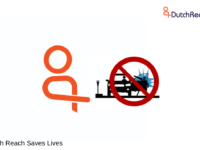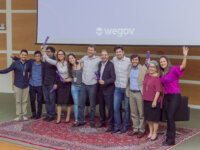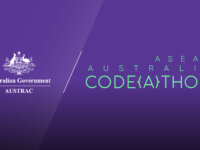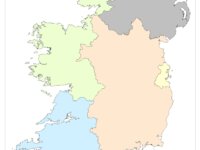Dutch Reach Project (DRP) closes a serious gap in existing road safety efforts to prevent “dooring,” a common, feared & at times fatal crash caused when exiting motorists - using their near hand - suddenly throw open their car door into the path of a bicyclist or other vulnerable road user (VRU).
To prevent dooring, DRP promotes the Dutch Reach (DR): reaching across to the door with the far hand to open - a much safer method.
The DR project is already gaining increasing attention and being…
Innovation Tag: Leadership
Organisational development in a municipality within a framework set by the municipal council is not new. However, a local authority can still be innovative in how it designs such development and the role employees play in it. In Nijkerk (approx. 43,000 inhabitants), this has led to an organisation made up of 28 self-managing teams that come directly under the authority of the municipal clerk. Nijkerk went through a process where employees and the development of their talent came first.
Case Study
Partnering for success: a regional monitoring system for social equity and inclusive development
A multistakeholder partnership created a regional indicators-based monitoring system to track pro-poor health policy change across the Southern African Development Community (SADC), a low-income region beset by socio-economic costs of a high disease burden. This stimulated SADC’s Result-Based Regional Monitoring and Evaluation initiative. Extending to all SADC priority areas, Results-Based Monitoring and Evaluation (RBME) enables real-time tracking of regional performance, documentation of…
The Northern Ireland (NI) Public Sector Innovation Lab has organised a hackathon, “Hack the Pain,” to address these needs of an underserved group: people with persistent pain. These individuals need for better information services for self-management, and the projects that emerged from the hackathon include a virtual reality app for mindfulness, a pain tracking app and a website of information on pain management techniques.
Canada Beyond 150 was an experiment in leadership development for a diverse cohort of new public servants, with the goal of encouraging a culture shift to a more open and innovative public service. Working in groups part-time over a year, participants learned foresight, design thinking and external engagement methods and applied them to complex policy issues, with a focus on diversity and inclusion. It demonstrated the power of experiential learning, especially from engagement with stakeholders.
HubGov is an interinstitutional program of innovation in Government that has the participation of institution from the three spheres and three powers. Through a learning trail in innovation and intrapreneurship skills, each institution comes up with a complex challenge and at the end of the program presents a solution proposal to this challenge.
AUSTRAC is the first known government law enforcement or intelligence agency to run a global Codeathon forum. AUSTRAC leveraged innovation, collaboration and exploited technology to improve its business operations, develop efficient new solutions in consultation with government partners, industry, academia and the private sector.
The Government Digital Service and the Ministry of Housing, Communities and Local Government launched the Local Digital Declaration to support and unite local authorities around a shared understanding of good digital practice.
It is a unique call to action that addresses the legacy IT contracts, isolation of procurement practices and siloed digital projects that have left local government services vulnerable to high delivery costs and low customer satisfaction for the public they serve.
Climate change requires comprehensive responses at local and regional level which makes local government critical to the delivery of national and international policies. The establishment of four Climate Action Regional Offices (CAROs) as Centres of Excellence based on distinct geographic/topographic characteristics enables them to advise local authorities in their region on climate action strategies ensuring a coordinated response and assisting with the roll-out of national/regional policies at…
Case Study
“Joint effort towards best results” Result oriented management and stakeholders engagement as an…
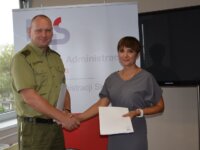
In light of the merger of three fiscal agencies into one, the Opolskie Revenue Administration developed a management model aimed at achieving the best results which is tailored to the needs and expectations of employees and the surrounding society. The new management model obtained a better understanding of the tax administration's mission by the local community by focusing on: user-centricity; stakeholder involvement in tax office to show transparency and public involvement; and listening…

